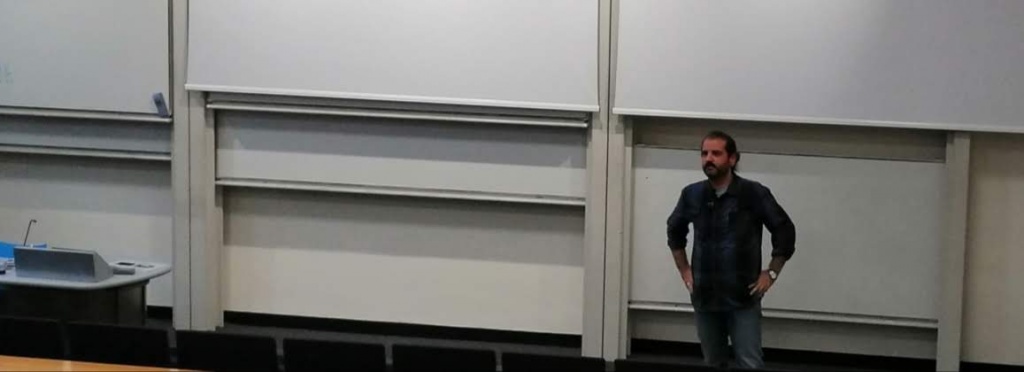EPEC Profiles – Juan Luis Rizos
In this series from the EPEC Communication Working Group, we meet members of the Europlanet Early Career (EPEC) community and find out more about their experiences and aspirations.
Juan Luis Rizos is a postdoc researcher at the Instituto de Astrofísica de Canarias working on machine learning tools to exploit spectral data from Solar System missions.
Dr Juan Luis Rizos was born in El Carpio, a small village that sits on the banks of the Guadalquivir River, near Cordoba, in the south of Spain. He started working in the music world as a youth, but always showed a strong interest in science. For this reason, he combined his work with studies in physics by distance learning. After graduating, he decided to continue with science, first earning a Master’s degree in Physics and Mathematics, and finally a PhD in Astrophysics. Although he never planned to become an astrophysicist, life offered him this opportunity and he did not hesitate in taking it.
During his PhD, Dr Rizos was an active member of the Image Processing Working Group of the OSIRIS-REx mission. This sample return NASA mission was launched to study the primitive asteroid (101955) Bennu, and he performed a spectrophotometric characterisation of the surface. using MapCam data, a medium-field imager. Given the large astronomical datasets taken by MapCam for several years, it was necessary to develop a methodology to manage these data for a spectral characterization of the Bennu surface. His methodology consisted of an unsupervised machine learning classification through the K-Means algorithm. It allowed the identification of spectral clusters with similarities for a global and local characterisation, with particular attention being paid to the places where the sample would be collected.

Currently, Dr Rizos is a postdoc researcher at the Instituto de Astrofísica de Canarias. He is interested in building machine learning tools to exploit spectral data from Solar System missions.
“Spectral data are a valuable source of information for understanding planetary surfaces, ranging from mineralogical composition to morphology, age, particle size, or organic molecules content. Until now, all unmanned missions to other bodies in the Solar System incorporate a suite of spectral instruments for high precision measurements. However, these instruments acquire large amounts of data that are almost impossible to analyse only by humans,” said Dr Rizos.
“EPEC is an amazing working group for young scientists. It brings together people from different places but with similar interests in Planetary Science. It puts a strong emphasis on cooperation and networking between different areas. I think early careers can make a big contribution to the community: they have an essential freshness and vitality.”
Juan Luis Rizos

If you are an Early Career member of the Europlanet Society and would like to be featured in an EPEC Profile, find out more about how to submit your profile.
See all the EPEC Profiles.

